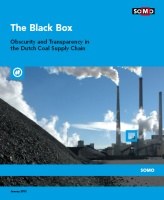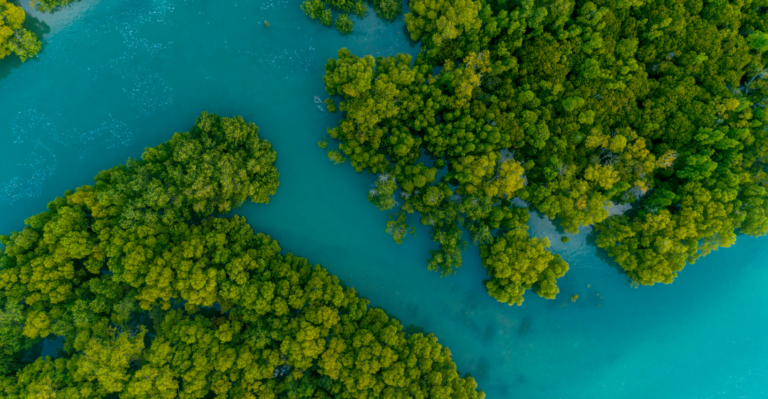
Lack of transparency on origins of coal leaves Dutch in the dark
Despite earlier promises, electricity companies continue to withhold important information about the origin of the coal they use. As a result, it is likely that coal imported into the Netherlands comes from mines where abuses of human rights and the environment are taking place. This is one of the conclusions of The Black Box: Obscurity and Transparency in the Dutch Coal Supply Chain, a report published today by SOMO in collaboration with Greenpeace. SOMO and Greenpeace call on the electricity companies to be transparent about the coal supply chain and guarantee consumers that no coal is used from mines where human rights and the environment are threatened.
None of the energy companies analysed in the report – E.ON, Vattenfall/Nuon, GDF Suez/Electrabel, RWE/Essent, DONG Energy and EPZ (DELTA) – are transparent about the specific mines where their coal comes from. “If companies are open about the coal chain, human rights violations and pollution in the coal chain can be prevented. But the electricity companies refuse to publish this information and as a result are not following recommendations laid out in international standards for supply chain transparency such as the OECD Guidelines for Multinational Companies”, says Joseph Wilde-Ramsing, Senior Researcher at SOMO.
One and a half years ago, the electricity companies initiated the Dutch Coal Dialogue (DCD) promising to increase transparency in the supply chain. The DCD was formed after the Dutch current affairs television programme Netwerk highlighted the issue and the Lower House of Parliament debated so-called ‘blood coal’ from Colombia and South Africa. In a debate with the State Secretary, a majority of the Lower House said it wanted more transparency in the coal chain. However, with the mandate of the DCD set to expire in six months, the DCD has yet to book a single concrete result with regard to transparency. Wilde-Ramsing: “If the companies quickly muster the will to provide more information, the deadline can still be met. The government can help the matter by implementing legislation that requires supply chain transparency.”
Using a survey among electricity companies and request under the Dutch Freedom of Information Act (WOB), SOMO discovered that Colombia, Australia, the USA, South Africa and Russia are the five largest coal suppliers to the Dutch market. At the same time that the importance of Colombian and Russian coal is increasing, several recent studies and reports reveal flagrant abuses of human rights and the environment in coal mines in these countries.
Rolf Schipper, Coordinator of Greenpeace’s Climate & Energy Campaign: “Nobody wants their electricity to be linked to evictions of people from their villages in other countries or serious air, water and soil pollution. It is therefore of utmost importance that there be transparency about the origin of coal. If energy companies such as RWE/Essent, E.ON, GDF Suez/Electrabel and C.GEN continue to build new coal-fired power stations, the capacity for coal-based electricity generation in the Netherlands will more than double, and the urgency of transparent coal supply chains will increase.”
Related news
-
 Civil society organisations push for transformative global investment rulesPosted in category:News
Civil society organisations push for transformative global investment rulesPosted in category:News Bart-Jaap VerbeekPublished on:
Bart-Jaap VerbeekPublished on: -
 The Counter: strengthening the fight for climate justice around the worldPosted in category:Long read
The Counter: strengthening the fight for climate justice around the worldPosted in category:Long read Luis ScungioPublished on:
Luis ScungioPublished on: -


